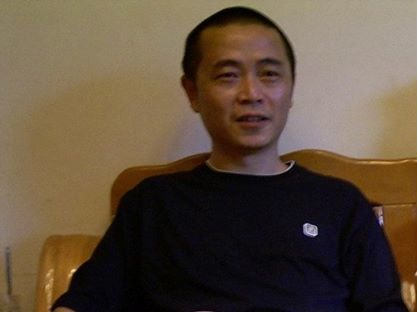RWB condemns the cyber-attacks on China's leading human rights information website 64 Tianwang that have repeatedly rendered it inaccessible since 16 September 2014. The creation of human rights activist and cyber-dissident Huang Qi, the site posts information supplied by citizen-journalists.
Reporters Without Borders condemns the cyber-attacks on China’s leading human rights information website 64 Tianwang that have repeatedly rendered it inaccessible since 16 September 2014. The creation of human rights activist and cyber-dissident Huang Qi, the site posts information supplied by citizen-journalists.
A Distributed Denial of Service attack launched at around 10 a.m. on 16 September paralyzed activity on the site until around 11 p.m. on 17 September. During the attack, the site redirected its visitors to its blog or Facebook page.
After resuming activity for 10 hours, the site was again rendered inaccessible on 18 September. Another attack occurred on 19 September, accompanied by the closure of 64 Tianwang’s Tencent QQand Weixin messaging and chat accounts.
Huang said: “Reports recently posted on 64 Tianwang, including reports about [dissident writer] Tie Liu’s arrest, land conflicts and the beatings of citizens trying to complain to local authorities, very probably triggered these latest attacks.”
“We condemns these targeted cyber-attacks, which testify to the sensitivity of the information revealed by 64 Tianwang,” said Benjamin Ismaïl, the head of the Reporters Without Borders Asia desk.
“Their intensity and the fact that they coincided with Internet company Tencent’s closure of 64 Tianwang’s messaging accounts indicate that they were acts of censorship instigated by the government. We urge the authorities to apply the constitution, which guarantees freedom of information, by bringing these untimely attacks to an end. We also call on Tencent to stop cooperating with the censors.”
Created by Huang in 1998, 64 Tianwang is regarded as subversive by the authorities. The police watch both Huang and his reporters, who were recently again the target of government-orchestrated reprisals after they covered protests in Tiananmen Square and various human rights violations.
The winner of the Reporters Without Borders Cyber-Freedom Prize in 2004, Huang has had two long spells in prison, the second of which began in 2008, after the Sichuan earthquake, when he was jailed on a charge of “illegal possession of state secrets.” He was briefly detained in March in connection with the coverage of the Tiananmen Square protests.
China has started blocking access to DuckDuckGo
DuckDuckGo, an Internet search engine that distinguishes itself by not tracking its users, has joined the list of websites that are being censored by the Chinese authorities.
The search engine’s creator and CEO, Gabriel Weinberg, reported on 21 September that Chinese Internet users have been unable to access his website since the start of the month.
DuckDuckGo has no servers inside China and does not filter its results as required by the Great Firewall of China, the Internet censorship system that the government created in 2003 to regulate access to foreign websites.
Reporters Without Borders deplores this violation of the right to information and the government’s heavy-handed regulation of the online content available in China. This latest act of censorship, designed to step up surveillance of Internet users and prevent democratic debate, must stop at once.
As it does not track users and respects the confidentiality of their searches, use of DuckDuckGo has soared since Edward Snowden exposed the extent to which the US intelligence agencies gather Internet users’ private data.
Exactly why China suddenly started blocking DuckDuckGo is not clear. But it seems that its anonymity policy and Apple’s recent decision to make it the default search engine in its latest version of iOS scared the censorship and propaganda officials responsible for “public security.”
Google and GoDaddy are among the many other sites that are censored in China.
Ranked 175th out of 180 countries in the 2014 Reporters Without Borders press freedom index, China has one of the world’s most sophisticated cyber-security systems.



